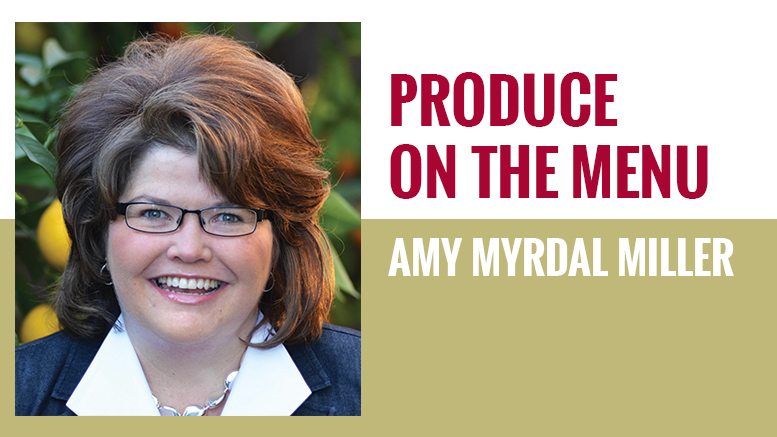The Impact Of Gen Z On The Restaurant Industry
April 26, 2022 | 4 min to read
The article highlights how Generation Z, born between 1997 and 2012, is shaping the restaurant industry with their distinct preferences and values. This cohort, known for being digital natives and diverse, favors inclusivity, health, and unique culinary experiences over lavish dining. They prioritize locally sourced foods, influence menu diversity with global flavors, and advocate for better wages and working conditions in the food sector. As they assert their preferences, the restaurant landscape is expected to evolve significantly over the next decade.

Originally printed in the March 2022 issue of Produce Business.
The restaurant industry is continually evolving, responding to food trends, demographic shifts, consumer demands, changes in the economy, staffing shortages, and so much more. Insights on what Gen Z consumers want is shaping how campus dining operations are designing dining halls as well as menus. How will this generation influence the restaurant industry over the next 10 years? Time will tell, but here are a few insights and predictions.
Generation Z or the “zoomers” were born between 1997 and 2012, so members of this cohort range in age from 10 to 25 years. They are more diverse than previous generations; 19% are Blacks and 23% are Hispanic.
Members of Gen Z describe themselves as adventurous, ambitious, creative, driven and funny, and many use social media to express these self perceptions. They also state that acceptance and equality are important priorities, and they are eager to try new things.
Gen Z members are often referred to as “digital natives,” meaning they were born after Internet access was widely available — they don’t remember a time without it and being connected is part of daily life. Members of Gen Z spend, on average, more than three hours a day on social media, while the rest of the U.S. population averages just under two hours a day.
Their social media use is frequent and varied. Zoomers use multiple social media channels more than once a day, including Discord, Instagram, Pinterest, Reddit, Snapchat, TikTok and Twitter. Newer platforms like Discord highly over-index for this generation at 355. Their most common channels for accessing information about products and brands are Instagram and TikTok.
From a political point of view, they are more likely to describe themselves as progressive and, perhaps surprisingly, pro-government, but they are less likely to believe the U.S. is superior to other nations compared to previous generations.
They are also ambitious. Gen Z is on track to be the most educated generation. Nearly six out of 10 high school graduates in this generation have enrolled in college, although for many the college experience has been quite different compared to that of previous generations due to the pandemic. The majority believe being successful and making money is important, a departure from the previous generation.
More than half of Gen Z consumers still live at home and are less likely to be doing any grocery shopping, but they are more likely to believe locally sourced and organic products are important. They love app-driven food delivery services like Door Dash, Uber Eats and Grubhub. They are also more likely than older generations to use subscription meal services like Hello Fresh and Blue Apron, showing a desire to learn to cook. When they do eat out, aside from campus dining locations, their top chain choices include Buffalo Wild Wings and IHOP.
So how will all of this influence the restaurant industry moving forward? Here are my predictions.
- Restaurants will be valuable parts of the lives of Gen Z, but exclusive, expensive fine dining will not be a priority for them. Their desire for inclusivity and equality will outweigh their desire to demonstrate success and wealth through expensive meals.
- Gen Z will push the restaurant industry to evolve menus to feature foods and flavors from countries and regions featured on only a few menus today. We’ll see more restaurants featuring menu items inspired by traditional cuisine of Central and South America as well as throughout Africa.
- Gen Z will support government mandates to increase wages, add benefits, and improve working conditions for people in the food industry, from farms and factories to restaurants and delivery services.
- They will seek produce for its nutrition and health benefits, with an emphasis on potential mental health and immunity benefits. Restaurants and foodservice operations that highlight produce items that demonstrate these benefits or for which consumers believe they provide benefit will be more successful than their competitors — unless they sell wings; then all bets are off!

Amy Myrdal Miller, MS, RDN, FAND is a farmer’s daughter from North Dakota, award-winning dietitian, culinary nutrition expert, and founder and president of Farmer’s Daughter Consulting, Inc. She is consultant for the Produce for Better Health Foundation, a member of the Texas A&M AgriLife External Advisory Board, and a member of the Bayer Vegetable Seeds Horticultural Advisory Council. You can learn more about her business at www.farmersdaughterconsulting.com, and you can follow her insights on food and flavor on social media @AmyMyrdalMiller
1 of 18 article in Produce Business April 2022

